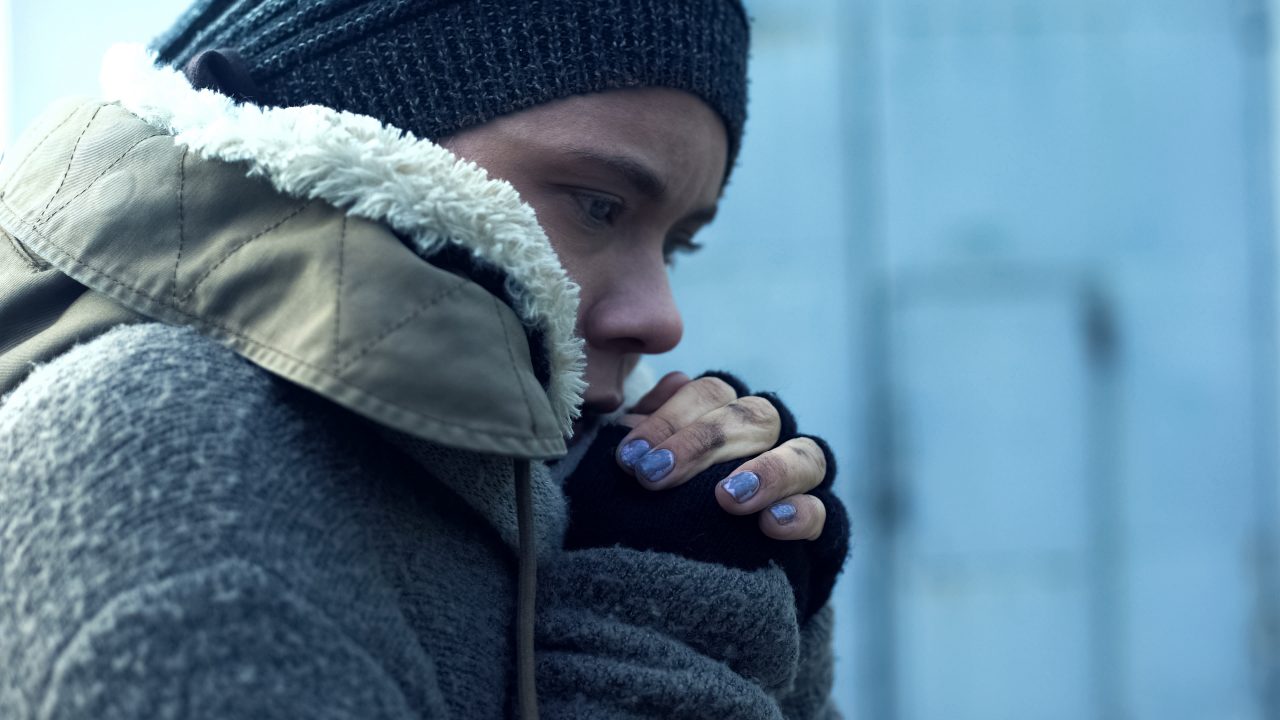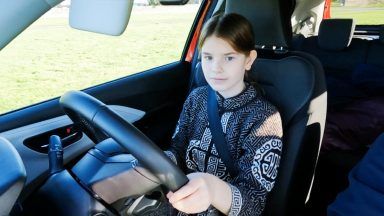The number of children living in temporary accommodation in Scotland has risen by more than a thousand over the space of a year, official figures show.
According to statistics published by the Scottish Government on Thursday, the figure grew from 7,385 children in March 2021 to 8,835 children in March this year.
It represents a rise of 17% in homeless children on last year’s level.
The data, compiled by Scotland’s chief statistician, shows there has been a rise in those becoming homeless from private rented tenancies – 15% compared with 11% in 2020/2021.
“I am deeply concerned at the increase in the number of children in temporary accommodation.”
Shona Robison, housing secretary
The figure has now reached almost pre-pandemic proportions of 16% in 2019/2020, with one contributing factor stated as an ending of the ban on evictions that was brought in during the coronavirus pandemic.
The emergency measure was lifted on May 17 last year.
There was also an increase in the number of applications made for homelessness assistance (35,230), up by 944 (3%) on 2020/21.
A total of 28,883 households were assessed as homeless or threatened with homelessness in the most recent period, up by 840 (3%) on the previous figures.
As of March this year, there were 13,945 households in temporary accommodation, an increase of 4% on the 13,359 households in March last year.
Homelessness applications that closed in 2021/22 which used temporary accommodation spent 207 days in temporary accommodation on average.
It represents an increased on the 204 days in the previous year, and 187 days in 2019/20.
It took an average of 256 days, almost eight-and-a-half months, to close a case for homeless households in the latest statistics.
Of the 28,882 homeless households, 63% of applicants were aged between 25 and 49.
Those making up single person households represented 67%, while 85% of applicants were of white ethnicity, and 52% had at least one support need.
Housing secretary Shona Robison said that she is “deeply concerned” by the rise in the number of young people in temporary accommodation.
“These statistics remind us why our commitment to prevent and end homelessness is so important, and show us that we still have work to do,” she said.
“While it is encouraging that rough sleeping is at its lowest level in 20 years and repeat homelessness is at a ten-year low, I am deeply concerned at the increase in the number of children in temporary accommodation.
“This is especially disappointing as 20 local authorities are managing to reduce the use of temporary accommodation.”
Robison continued: “Two thirds of families with children in temporary accommodation are in social rented homes, and many more are in private rented tenancies, but we want them to have the stability of a settled home.
“We know the situation has been exacerbated by the pandemic, which has led to a backlog for local authorities that must be addressed.
“This year we’re providing councils with £23.5m for homelessness prevention and response measures, on top of £8m to help them reduce use of temporary accommodation by moving people into settled homes as quickly as possible.”
The housing secretary indicated that there must be a “greater emphasis” on families.
An expert group has also been asked for an action plan to reduce the number of people living in temporary accommodation, with a “strong focus” on households with children, Robison said.
“The best way to reduce the use of temporary accommodation is to prevent people becoming homeless, and we know local authorities and their partners are focused on this,” she continued.
“We are introducing duties on public bodies to ensure they help prevent families from becoming homeless, and we continue to deliver new homes for social rent.
“We have invested in anti-poverty measures including the Scottish Child Payment, which will increase by 150% this year, and boosted funding for Discretionary Housing Payments to mitigate the impact of the benefit cap for families.”
Scottish Labour housing spokesperson Mark Griffin underlined his party’s call for an immediate rent freeze and a ban on winter evictions.
He urged the Scottish Government to take the same action as during the pandemic to stop people from losing their homes.
“These grim figures underline the need for urgent action before the cost of living crisis makes a bad situation worse,” he said.
“The SNP ignored warning after warning that they created a cliff-edge for tenants when they scrapped protections without putting the necessary support in place.
“Now they are sleepwalking towards disaster once again as long as they sit on their hands and ignore the issue.
“During the pandemic we took emergency action to stop people losing their homes because of the crisis – and now we need to do the same again.
“That’s why Scottish Labour are calling for an immediate rent freeze, support for tenants, and a ban on winter evictions.”
Scottish Conservative housing and local government spokesperson Miles Briggs urged ministers to “get a grip” and take responsibility.
“One individual or household being homeless in Scotland is one too many,” he said.
“On the SNP’s watch, the number of people who are currently homeless is only heading in the wrong direction.
“Ministers need to get a grip and take responsibility for their failings to secure enough secure accommodation for those who are most vulnerable.
“These problems are only likely to exacerbate during the cost-of-living crisis that is hitting hard right now and will continue to do so in the coming weeks and months.”
Scottish Liberal Democrat leader Alex Cole-Hamilton said that the Government should be “ashamed” over the figures.
“This is absolutely heart-breaking news. With a cost-of -living crisis that is spiralling out of control every day, children are becoming some of the worst affected,” he said.
“The Government should be ashamed. In a paper released yesterday, they failed to identify the cost-of-living emergency as a priority for government action.
“This is shockingly tone-deaf and dangerously ignorant.”
Matt Downie, chief executive of Crisis, said it is “completely unacceptable” that people are spending longer periods of time in temporary accommodation.
“These statistics should represent a wake-up call. Scotland made huge progress in tackling rough sleeping during the pandemic, but fact that more people are spending longer periods of time trapped in temporary accommodation is completely unacceptable,” he said.
“We know how damaging spending long periods of time in temporary accommodation can be – particularly for children and young people. You get a roof over your head, but a B&B is not a home.
“People are stripped of their dignity and left unable to plan for the future. But while temporary accommodation should be an emergency measure, too often it is treated as the default solution.
“The best way to end homelessness is to prevent it from happening in the first place.
“By offering people support earlier, and by widening responsibility for preventing homelessness, we can start to reduce the numbers of people in temporary accommodation and make sure everyone has a safe and secure place to call home.”
Follow STV News on WhatsApp
Scan the QR code on your mobile device for all the latest news from around the country


 iStock
iStock

























